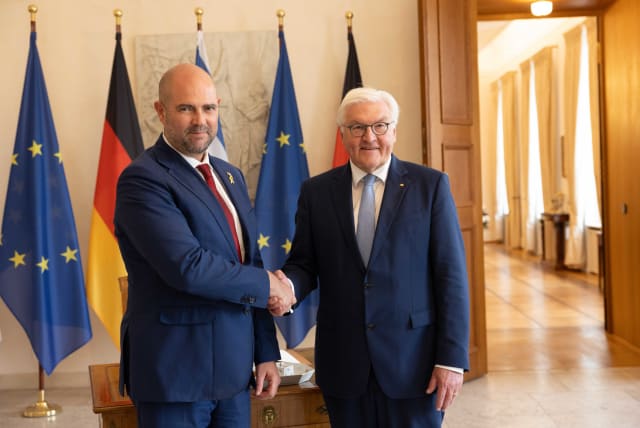Germany's political crisis: What will happen after the snap elections?

The snap elections might create a new political crisis, however, since recent polls show the Conservatives will not have a partner to form a right-wing government.
Germany’s political crisis has ended, for now, as the main parties agreed to hold snap elections on February 23, 2025, 7 months before the scheduled general elections.
The ruling Social Democratic Party (SPD) and the main opposition party, the Union of the Conservatives, reached an agreement on the snap elections date, which has to be approved by the German President Frank-Walter Steinmeier.
This joint decision puts a temporary end to a political crisis that resulted in Chancellor Olaf Scholz firing Economy Minister Christian Lindner, the leader of the liberal Free Democratic Party (FPD), thus ending the three-party center-left coalition that has governed Germany for over three years.
A crisis to come?
The snap elections might create a new political crisis, however, since recent polls show the Conservatives, who are certain to win the elections, will not have a partner to form a right-wing government.
The far-right party Alternative for Germany (AfD), which, for the first time, is expected to become the second largest party in the Bundestag, is still being boycotted by the Conservatives, as it is considered by the Agency for Defending the Constitution (Germany’s internal security organ) as being “extreme-right” and “a threat to Germany’s constitution.”
The other possible partner of the Conservatives, the liberal FPD, will not necessarily obtain 5% of the votes, the threshold to enter the Bundestag. The Conservatives will once again face the need to form a coalition with left-wing parties, the Social Democrats or the Greens, a choice that might weaken them in the future and strengthen the AfD.
According to the latest poll published by Bild, the Conservatives are expected to get 32.5% of the votes, the AfD 19.5%, the SPD 15.5% (the worst result in the party’s history), the Greens 11.5%, the new left populist party BSW 7%, and the FPD 5%. It is not clear yet if the SPD will stick with Scholz as its candidate for the position of Chancellor, as he is extremely unpopular.
There are growing calls within the SPD to replace Scholz with Defense Minister Boris Pistorius, who is nowadays the most popular politician in Germany, well ahead of the leader of the Conservatives, Friedrich Merz. The nomination of Pistorius as a candidate for the Chancellorship might put the SPD in a better position to negotiate the formation of a future government with the Conservatives.
Jerusalem Post Store
`; document.getElementById("linkPremium").innerHTML = cont; var divWithLink = document.getElementById("premium-link"); if (divWithLink !== null && divWithLink !== 'undefined') { divWithLink.style.border = "solid 1px #cb0f3e"; divWithLink.style.textAlign = "center"; divWithLink.style.marginBottom = "15px"; divWithLink.style.marginTop = "15px"; divWithLink.style.width = "100%"; divWithLink.style.backgroundColor = "#122952"; divWithLink.style.color = "#ffffff"; divWithLink.style.lineHeight = "1.5"; } } (function (v, i) { });

